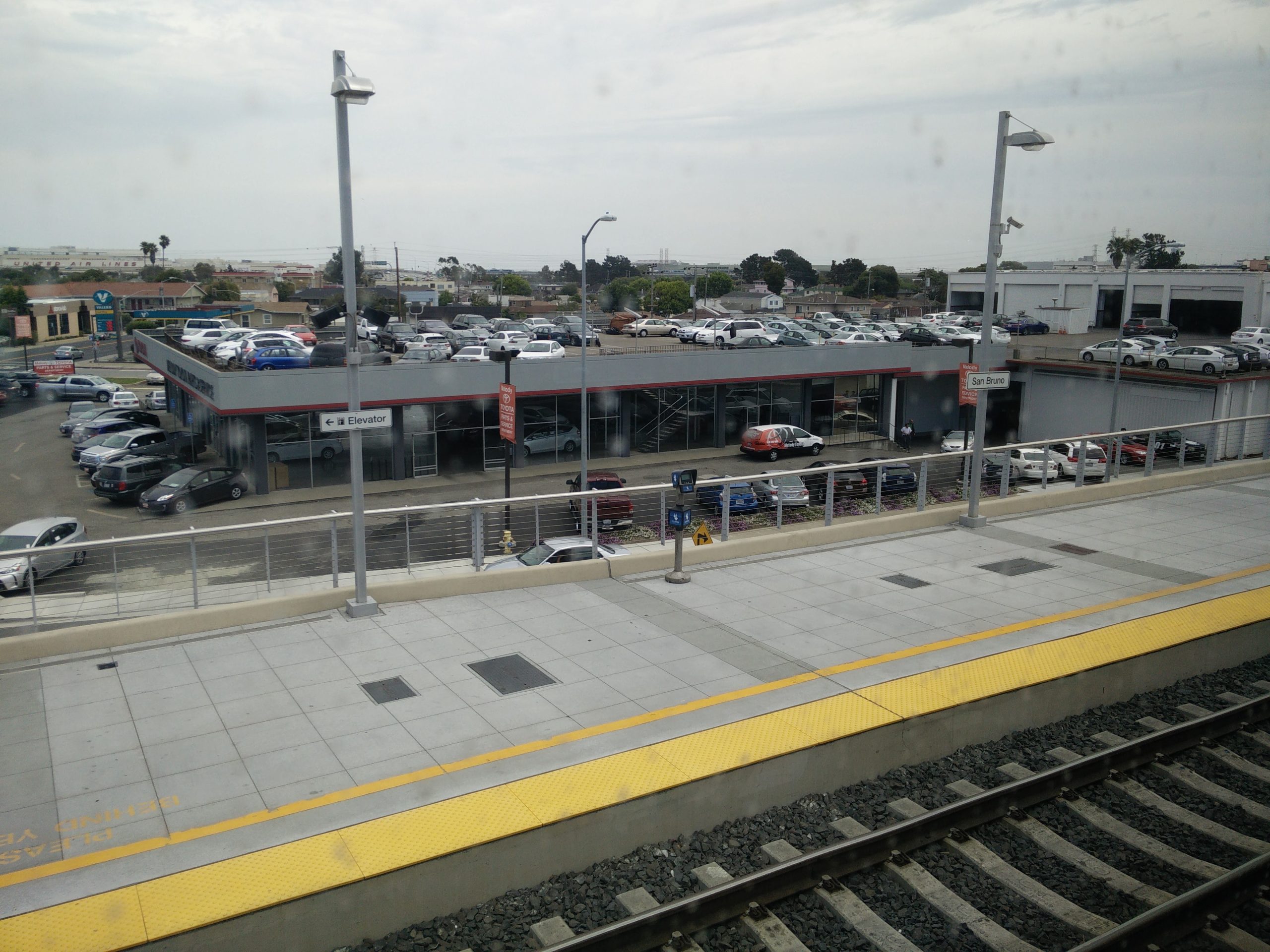THINKING: housing
Assembly Bill 2097: Implementation in Los Angeles

Aimed at addressing two critical issues—housing affordability and environmental sustainability—Assembly Bill 2097 (AB 2097) has the potential to transform California’s urban landscape. Signed by Governor Newsom in September 2022, here’s a closer look at what this legislation entails and why it’s so important.
Understanding Parking Mandates and Their Impact
At the heart of Assembly Bill 2097 is the goal to eliminate expensive parking mandates for homes near transit. These mandates, which dictate that new construction must include provisions for parking spaces, are a typical requirement in local zoning codes.
Parking mandates significantly increase construction costs. With every parking spot adding $40,000 or more to the cost of building a multifamily building, they’re a reason why housing in California is so expensive to build.
California is moving to reduce greenhouse gas emissions and make residents less dependent on driving. By tying AB 2097 parking reductions to proximity to transit, the legislation aims to move residents to less car dependence and a greater use of buses and trains.
The legislation defines the applicability to sites within a 1/2 mile walk of a major transit stop, which is defined as existing rapid transit stations, ferry terminals served by bus or rail, or the intersection of two or more major bus routes with a frequency of service of 15 minutes or less during peak commute periods. A single bus stop does not qualify, so it is slightly different from the parking eliminations available under ADU laws.
The Potential Benefits of Assembly Bill 2097
Here’s some potential benefits of AB 2097:
- Affordability and Choice: By doing away with these mandates, Californians will have more freedom in choosing where and how they live. If a person wishes to live near transit options and doesn’t need a car, why should they pay extra for a parking space they won’t use? By decoupling parking from housing, we can expect a broader range of housing options with varied costs, making California’s cities more accessible to all.
- Car-light Urban Planning: With the elimination of parking mandates, there will be less emphasis on car-centric city planning. This will pave the way for more pedestrian-friendly neighborhoods and better public transit infrastructure. Over time, this can lead to reduced car usage and, consequently, fewer emissions.
- Optimizing Urban Space: Currently, cities like Los Angeles are overburdened with parking—accounting for a staggering 200 square miles. That’s a vast amount of space that could be repurposed for green areas, recreational spaces, or even more housing. With Assembly Bill 2097, we can hope for more efficient use of urban spaces.
Implementation in Los Angeles
On October 23, 2023, the City of Los Angeles Department of City Planning (DCP) released an interdepartmental memo detailing the interpretation of specific provisions of AB 2097 for both city departments and applicants. The memo offers guidance on the bill’s implications for development projects within Los Angeles.
It contained some clarifications on the application of parking reductions as per AB 2097. Parking space reductions don’t extend to projects that designate (either create or expand) any section for transient lodging uses like hotels, motels, and bed and breakfast inns. This means if a project decides to incorporate or expand such uses, they can’t take advantage of the bill’s parking reductions.
However, an interesting exception is made for “residential hotels” as described in Section 50519 of the Health and Safety Code – these aren’t categorized as transient lodging, and hence, can benefit from AB 2097. Additionally, parking reductions also don’t apply to spaces meant for event center staff or public commercial parking that had prior agreements with public agencies before the start of 2023.
For the initial year of AB 2097’s implementation, the Department of City Planning will gather data to evaluate the effects of the new parking rules, especially concerning affordable housing and special needs housing. DCP is also asking the public to submit evidence regarding potential negative impacts on parking due to a project. If claiming a parking impact, a detailed parking study compliant with LADOT standards must be presented.
Public agencies can set minimum parking requirements for discretionary development projects if they can provide written reasons within 30 days after receiving a complete application. Despite this, the following housing projects are exempt:
- Those offering at least 20% of units to specific groups like low-income households, students, the elderly, or the disabled.
- Developments with less than 20 units.
- Projects already benefiting from parking reductions under other laws.
Exceptions
If a public agency wishes to enforce parking requirements, they must provide written evidence within 30 days of receiving an application, proving that waiving these requirements would significantly harm:
- The city’s ability to address housing needs, especially for low income households.
- Special housing needs, e.g., for the elderly or persons with disabilities.
- Existing parking conditions within the half-mile radius.
Additional Considerations
- AB 2097 does not negate requirements for Electric Vehicle Charging Stations (EVCS) or Handicap Parking Spaces. If parking is offered voluntarily, it should align with existing EV and ADA parking standards.
- The bill does not affect bicycle parking requirements.
- For properties in the Coastal Zone, the California Coastal Commission’s memo from June 30, 2023, should be referred to.
- Existing contractual agreements related to commercial parking from before January 1, 2023, are not affected by this bill.
Assembly Bill 2097 is more than just a piece of legislation—it’s a vision for a better, more sustainable California. Recent studies compellingly demonstrate that minimum parking mandates hinder the development of new urban housing and increase housing costs. By recognizing and rectifying the pitfalls of outdated parking mandates, the state stands to gain both environmentally and economically. As California continues its journey towards a more sustainable and inclusive future, measures like AB 2097 will play a pivotal role in shaping its path.